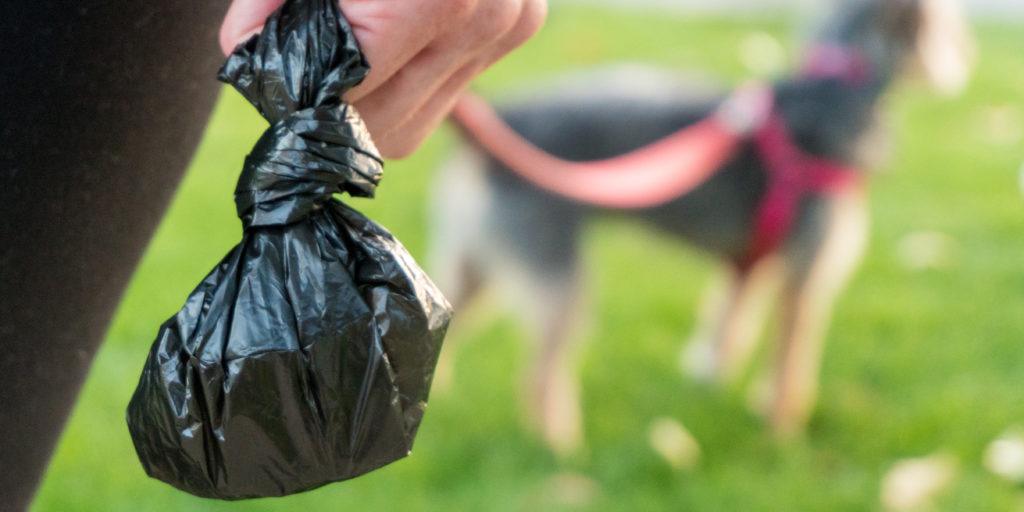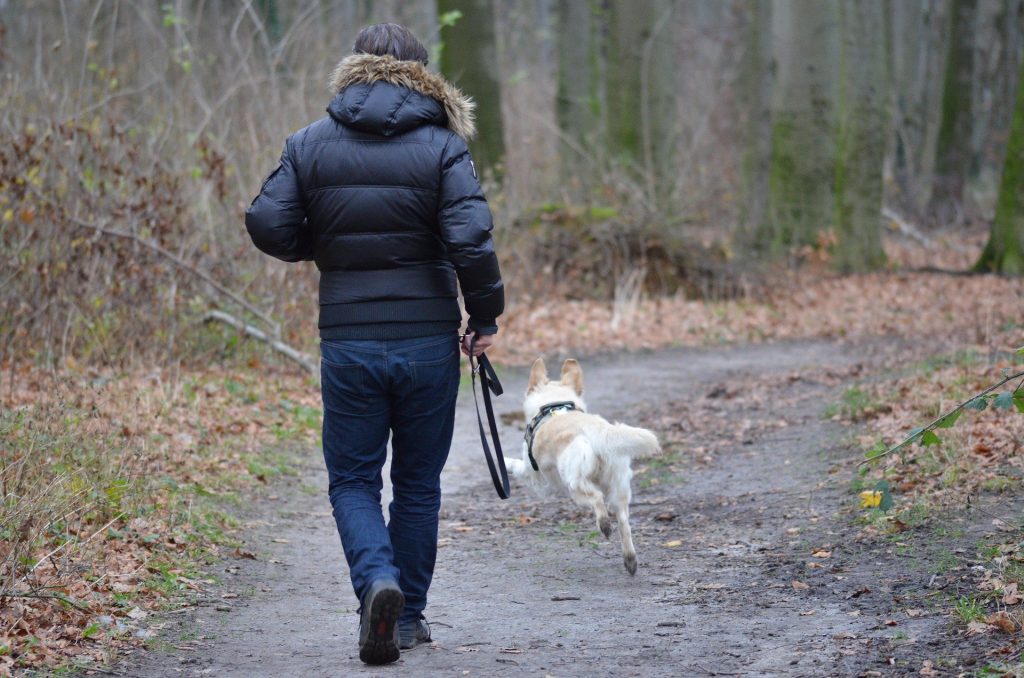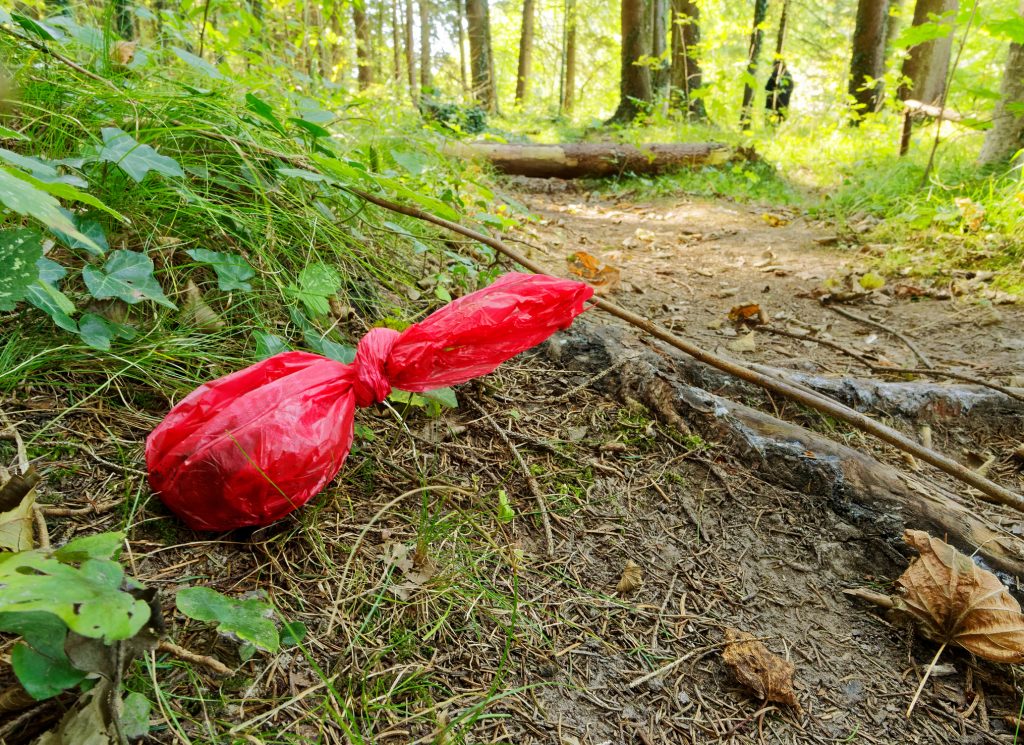
- Vitalii Homon
- January 29, 2021
- Ask Eartha
Dear Eartha, the amount of dog poop I see around town and on our trails is concerning. Is it bad for the environment when our dogs do their business and it’s not picked up?
We have all seen or smelled the landmines that our dogs leave behind when it’s time for them to go. The impact on our environment can be less noticeable but when we don’t clean up after our furry friends, it can leave a lasting negative impact on the places we love.
Why It Matters
To any dog owner who shrugs off their pooch’s poop in the woods as no big deal, I’d encourage them to consider the cumulative impact. According to the Leave No Trace Center for Outdoor Ethics, across the US, 83 million pet dogs produce 10.6 million tons (that’s 21.2 billion pounds) of poop every year, each pound adding excess nutrients to the ecosystem if the waste isn’t disposed of properly. While of course, only a portion of that ends up on our local trails, my point is that it adds up.
So what’s the big deal, you ask? Excess nitrogen and phosphorus from dog poop create unstable conditions that contribute to invasive species in our forests and algae blooms that cloud our rivers, lakes, and streams1. Not only are those algae blooms unsightly, but they can also create dead zones in sensitive aquatic habitats and can be toxic to wildlife.

The Colorado Department of Public Health and Environment and Colorado Parks and Wildlife has reported an increase in toxic blue-green algae blooms in bodies of water around the state in the last few years2. Researchers with the state have attributed the increase to climate change, pet waste, chemical fertilizers, and deicers that are used during the winter months on sidewalks.
To reduce our impact on the environment and ensure healthy forests and water one step dog owners can take is to simply pick up after their pooch.
Bag vs No Bag
By now, dog owners may be asking themselves: is there ever a time when it’s ok to let my pooch poop in the woods? The answer is maybe, and only if you bury it, just as you would your own. If you are in the backcountry with your pup and unable to pack out the poop, bury it in a hole six to eight inches deep, located at least 200 feet, or 70 big steps, from a water source1. Cover it with soil and a large rock if possible.
Perhaps you’ve seen abandoned trailside poop bags. In places where dog poop bags are commonly abandoned, this can create a new social norm, indicating that it’s okay to leave dog poop bags on the ground. A new dog owner or someone new to the area might see the bags and decide that this is a common and accepted practice. In other words: bags beget bags. And bags that are touted to be “biodegradable” can lead people to think that it’s okay to leave them on the ground when, in reality, it becomes hazardous, not to mention unsightly, trailside trash.
So reuse that old bread bag and pack it out to a waste bin. Your dog’s poop belongs in a landfill. Anywhere else, and it pollutes the environment. You can also ask your local Open Space and Trail departments to install more waste bins at trailheads to incentivize people to pack it out. A study in Boulder County found that dog owners were substantially more likely to bag up their dog’s poop if waste bins were accessible at trailheads.

How to be Responsible
Whether or not you recreate with a pooch, it’s a good idea to care for the outdoor spaces we love so much. The next time you are going out to your favorite park or trail bring a bag and gloves and pick up any dog poop bags and trash that you find. By doing so you can turn your run, hike, or bike ride into a catalyst for good.
Convince your friends to join you in areas that see high traffic and are impacted more by pollution to cover more ground. Make a competition out of it to see who can collect the most trash and share your findings on social media by tagging #take3forthetrail to inspire others.
